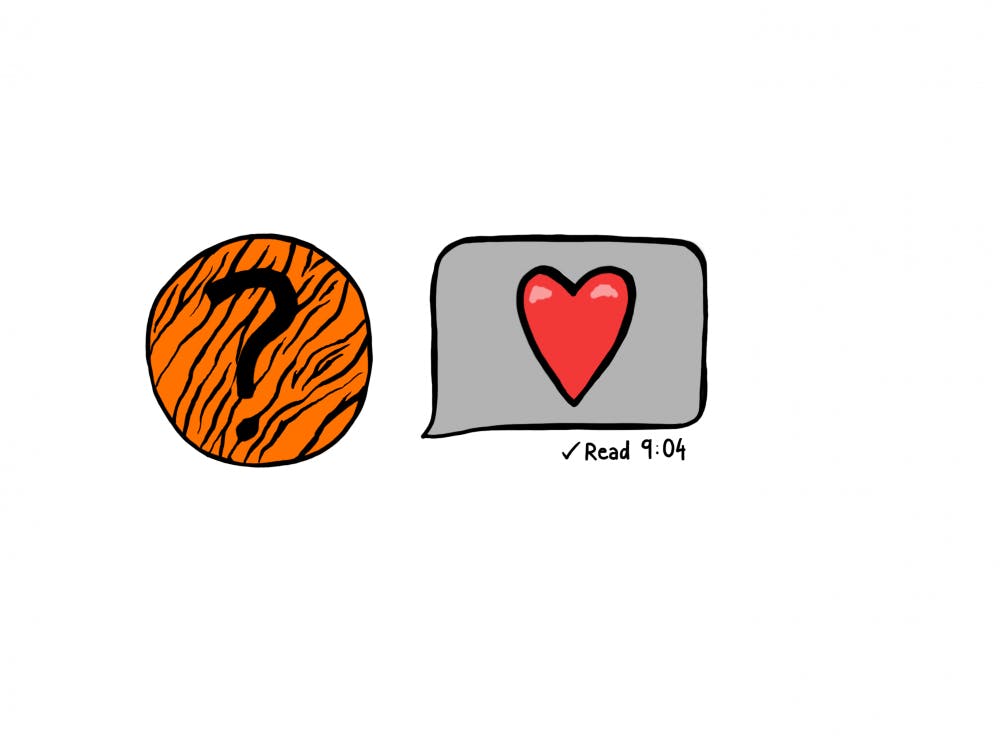In a recent interview with the Daily Princetonian, the anonymous founder of Tiger Confessions, a Facebook group for Princeton students, described the platform as a “a forum where students who have something on their mind can get something off their mind.” The founder added that the page enables students to express something they wouldn’t “feel comfortable talking about in person,” as posts in the platform are also anonymous.
The group, which has obtained more than 4,000 members (including myself), is, by all indications, a rapidly growing, Princeton student-specific, social media confessional.
Ostensibly, Tiger Confessions provides an important social outlet for Princetonians to air their grievances, share their thoughts on campus life, seek out emotional support, or simply interact with one another.
Yet on a deeper level, the anonymous platform’s popularity bespeaks the performative invulnerability and emotional repression of the University’s social culture. It seems that many Princetonians find Tiger Confessions a more effective source of therapy and community facilitation than their classmates, not to mention other in-person, non-anonymous University resources, such as RCAs or Counseling and Psychological Services.
Many of the page’s posts are anonymous compliments to other students, as well as expressions of romantic love. Other posts involve complaints about the absurd workload of Princeton life. And some are ideological, asserting that Princeton is too white or too rich (or both), highlighting the moral hypocrisy of Bicker, and so on.
Yet increasingly, posts have taken on a more revelatory, and sometimes darker, tenor.
Princetonians have confessed to still being in love with their ex, feeling like they don’t belong at Princeton, or experiencing loneliness and a desperation for sex and romance. Others have admitted to feeling severely depressed and suicidal or enduring alienation, discrimination, and interpersonal violence or simply needing a hug.
While it’s a blessing that Tiger Confessions allows us to share these experiences and receive some level of peer empathy, the fact that the platform is seemingly the only outlet some students have to express what’s on their mind is disconcerting, if not heartbreaking.

Perhaps we naturally feel uneasy about being vulnerable with our peers or other resources of social support. But there also seems to be a unique, impenetrable invulnerability on this campus that is decidedly Princetonian in nature.
Based on my social relationships here, I have learned that so many of my peers feel isolated. They yearn for deeper, more sincere relationships, think they’re missing out on Thursday and Saturday nights, and wish Princeton’s social scene was more egalitarian, accessible, and humane.
Loneliness is certainly part of problem, but it doesn’t, in itself, explain Princeton’s unforgiving social dynamics. Princeton’s loneliness epidemic is compounded by the seemingly pervasive feeling that there’s a clear in-group and out-group on campus.
On any given Saturday night, the in-group Princetonians can always find a pregame and snag that sacred pass to Ivy — and when they get to the club, they always have someone to talk to. In other words, they have the privilege of entering any social space and feeling like they belong.

Yet on any given Saturday night, out-group Princetonians are studying alone in their rooms, sleeping early, or caught between the impulse to go out and the impulse to stay in, because, really, would anything really change if they “put themselves out there,” as their peers or their parents often urge them to do, as if their being alone is a product of their own social laziness?
In an illuminating Tiger Confessions post from this weekend, one Princetonian described a night when they went to the Street, yearning for companionship. But ultimately, despite this student’s best efforts at connection, their night was defined by social rejection — because, for some, genuine warmth and friendship is inaccessible on Prospect Avenue.
At the end of their courageous post, the student explained: “… I just don’t understand why. I. Always. Have. To. Be. The. One. To. Make. All. The. Effort. In reaching out to people and [making] new friends. And [yet] perpetually feel like I’m still an outsider and not really part of some group. Like f*** this. Literally f*** this.”
Amen.
While many of us agree that experiences like this demonstrate the coldness of and lack of empathy in Princeton’s social scene, we seem reluctant to do anything about it — though any attempt at rectification may be futile, at best.
The institutional and cultural inertia at Princeton makes substantively changing the social landscape virtually impossible. Plus, enough Princeton students are in-group members, benefiting — at the expense of others — from the institution’s stratified social dynamics. Hence, many of these in-group Princetonians could scarcely care less about, or are simply ignorant of, the pain and exclusion their less fortunate peers endure.
So, for now — if not forever — many Princeton students who long for a more empathetic, demonstrably caring, other-centric, less cynical campus will remain confined to a single Facebook page to find any true level of intimacy and belonging.
Samuel Aftel is a junior from East Northport, N.Y. He can be reached at saftel@princeton.edu.








